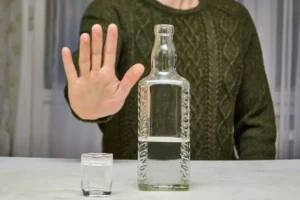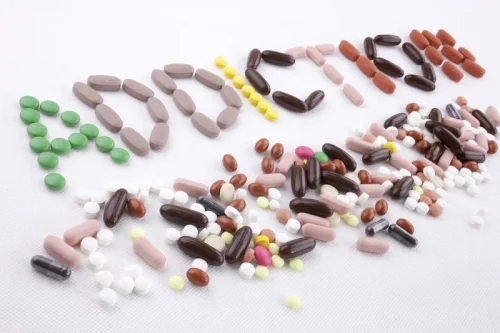The Link Between Stress and Alcohol

Taken together, this body of research emphasizes the role of emotions in general as important therapeutic targets in alcohol dependence treatment. This also suggests possible changes in brain glucocorticoid pathways in humans that may increase risk of hazardous drinking. As stated earlier, alcohol consumption stimulates cortisol release; however, in response to either stress or alcohol exposure, the increase in cortisol is lower in people who binge drink or drink heavily than in those who drink moderately. This disruption https://ecosoberhouse.com/ in alcohol-related cortisol signaling and the need to drive the homeostatic HPA axis rhythm back to functional levels may be one component of the enhanced motivation for alcohol in those who drink alcohol at binge and heavy levels. This conceptual model suggests that normalizing the brain and body’s stress and motivational coping responses may reduce risk of hazardous drinking. Researchers are seeking to develop and evaluate novel strategies to achieve this normalization and to reduce the risk of heavy drinking.

Causes of Stress
- The average age of the men was 26.4 years old, 50% were undergoing treatment for the PSU, 20% participated in laboratory studies, 10% were university students, 10% were in the prison system, and 10% were part of the general population.
- Alcohol addiction treatment provides a safe space where people can get to the root causes of their addiction, and address them to prevent relapse.
- As a result, you may be overly aggressive during a situation where you’d otherwise notice the cues that tell you to think more rationally.
That is, angry clients seemed to fare better in the less directive and structured condition than in the more structured CBT and AAF conditions. These findings, however, do not directly address anger management as part of intervention, but only how client characteristics interacted with other treatments. The CBT condition in Project MATCH which focused on enhancing cognitive-behavioral coping skills included two optional sessions focused on anger.

Anger and Alcoholism: What You Don’t Know, But Should
In a separate study involving 24 men and 11 women, alcohol alone had no effect on the amygdala and ventral striatum; however, their activities were positively correlated with aggression in response to provocation. Alcohol decreased their bold responses in the right PFC, thalamus, hippocampus, caudate, and putamen. Neither gender had any significant impact on the results (Gan et al., 2015). Contrary to this, a single administration of 0.5 per thousand alcohol was shown to reduce frontal interhemispheric connectivity in female participants, but not in male participants (Hoppenbrouwers et al., 2010). Intergender neurological and behavioral responses to alcohol are also influenced by ethanol metabolism (Arthur et al., 1984) and influences of hormones such as testosterone, cortisol, estradiol, progesterone, and oxytocin (Denson et al., 2018).
4 Prediction of Alcohol Involvement Outcomes
Anger, whether as a contributing factor to addiction or as a consequence of it, can present significant challenges along the path to sobriety. However, by understanding the underlying causes of anger, developing healthy coping mechanisms, enhancing communication skills, and seeking professional help when needed, individuals can effectively manage anger and break free from its grip on their lives. Studies that compared trait and state anger between substance users and non-users were included. Psychoactive substance users was described in the studies according to clinical evaluation based on the DSM-III and DSM-IV criteria for substance use disorder.
Our treatment specialists will evaluate you and determine a treatment plan to help you overcome your addiction. We offer a partial hospitalization program and inpatient treatment to provide the support you need. Your plan will include individual and group therapy as well as various other treatments, such as cognitive behavioral therapy and hypnotherapy treatment. alcoholism and anger The first step in recovering from alcohol addiction is detoxing and getting it out of your system. Our treatment specialists will help you through this phase, using medications to assist with withdrawal symptoms. It’s important that you don’t try to detox on your own because some of the withdrawal symptoms from alcohol abuse can be dangerous and even fatal.
- Emotional states such as anger, frustration, and hostility are said to lead an individual to perform expressive murders.
- Moreover, meta-analyses (Beck & Fernandez, 1998; Del Vecchio & O’Leary, 2004; DiGuiseppe & Tafrate, 2003; Edmondson & Conger, 1996) show CRCS to be an effective intervention that had roughly equivalent effects to other interventions.
- Future research should assess gender as a moderator of treatment outcome and use that information to inform the content of alcohol-adapted anger management for alcohol dependent men and women.
- For more information about how we can assist you in your recovery journey, read about our alcohol addiction treatment options.
- These medicines can help reduce the negative side effects of detoxification and withdrawal.
- Just like individuals who seek thrills for the adrenaline rush, some people have the same effect from anger.
- Decreased cognitive function also means it’s more likely for you to misread a situation and overreact.
Understanding anger and aggression
He has years of counseling experience and a master’s degree in Spiritual Psychology from the University of Santa Monica. After observing how depression and substance abuse impacted his wife’s life, Joe realized how broken our current system is for addiction and related mental health treatment. He witnessed firsthand how an evidence-based approach coupled with Spiritual Psychology saved Betsy and enabled her to gain control of her life.

The Difference Between Anger and Aggression
- In others, anger is present before drinking and drinking brings out that anger.
- It’s crucial to recognize that the emotional impact of alcohol varies significantly from person to person and can be influenced by various factors such as individual predispositions, external stressors, and social contexts.
- It was found that the prevalence was higher for females than males from 2000 to 2010 for any binge drinking in the preceding month.
- A slight annoyance may turn into an infuriating problem, thanks to alcohol.
- By seeking recovery for problems with alcohol and anger, you can work toward a more positive life.
For individuals already dealing with anger issues, alcohol can intensify and magnify these underlying challenges. This amplification occurs due to alcohol’s impact on the brain’s neural pathways, particularly those involved in emotional regulation. Alcohol has been shown to intensify feelings of anger and aggression in many individuals. This link is miscellaneous, involving both physiological and psychological factors. For numerous individuals, alcohol serves as a coping mechanism, offering temporary respite from underlying stressors, anxieties, or unresolved traumas.

Deixe um comentário